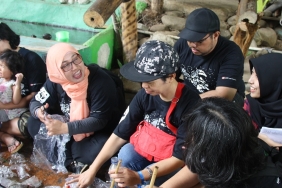PALM OIL IN THE EYES OF CONSUMERS
It is interesting to find out the extent of consumer understanding of palm oil and its issues. RSPO (Roundtable on Sustainable Palm Oil) conducted a survey on consumer perceptions of sustainable palm oil. According to the survey results, it was revealed that there are still many members of the public who do not understand the concept of sustainable products. Consumers' knowledge of the environmental and social consequences of the products they consume on a daily basis is still minimal.
Lipstick, toothpaste, to laundry soap
It was found that most people still identify palm oil only as a raw material for cooking oil, margarine, and other food products. Very few people realize that palm oil is the raw material for a variety of products that are not only food, such as beauty products, health care products, and household products such as detergents.
The survey results reveal how dependent people are on cooking oil, which is cheaper than other vegetable oils and is considered to have nutritional value and vitamins that are good for health. The survey results conducted in Medan, Palembang, Pekanbaru, Jakarta, Bandung, and Surabaya also found that so far people have bought products containing palm oil only by considering brand popularity, additional benefits, and prices and promos. The RSPO label is not yet widely recognized and environmental issues are still not considered when choosing palm oil-based products.
Most people also still see the palm oil industry positively because of its effect on economic development, in terms of additional employment and improving the welfare of smallholders. Information about the palm oil industry being the cause of forest fires in Sumatra and Kalimantan is also unevenly distributed, as there are still those who think that the palm oil industry has contributed positively to the environment, taking into account that palm oil includes trees, and trees can reduce air pollution. Social issues caused by the palm oil industry such as the deprivation of the rights of rural tribes and land struggles between communities in palm oil plantation areas and palm oil companies also do not reach the ears of most consumers.
Socialization is a must
The results of this RSPO survey will be a reference for WWF in socializing environmental issues caused by the irresponsible palm oil industry to the public, and inviting people to understand the importance of consuming sustainable palm oil-based products.
It is time for the wider community to be made aware that meeting the needs of palm oil-based products does not need to be at the expense of meeting the needs of future generations due to environmental destruction and loss of social justice. This is the concept of sustainability or sustainable.
WWF feels called to continue writing and disseminating information about the ins and outs of palm oil and what the criteria for sustainable palm oil are. One of the real steps is to invite the public to choose products from sustainably managed palm oil plantations through the #BeliYangBaik campaign on change.org.





